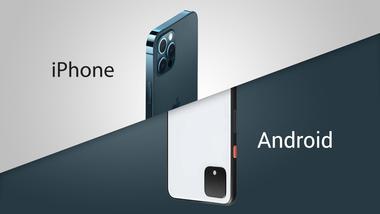
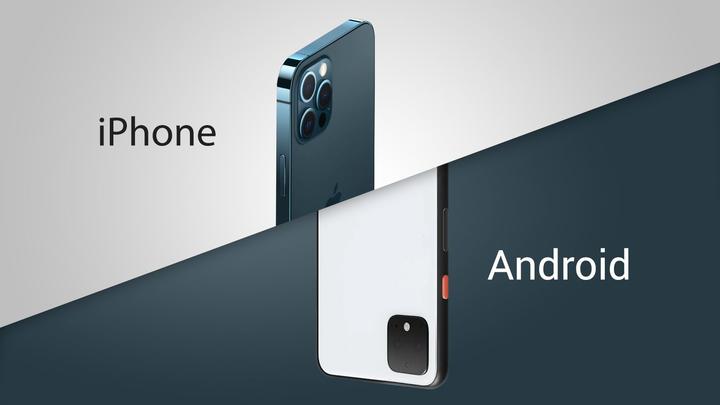
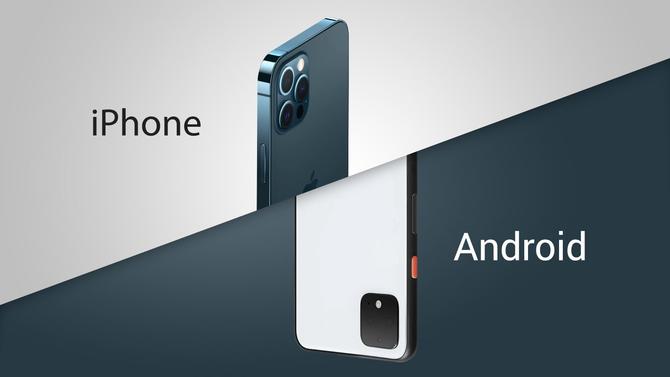
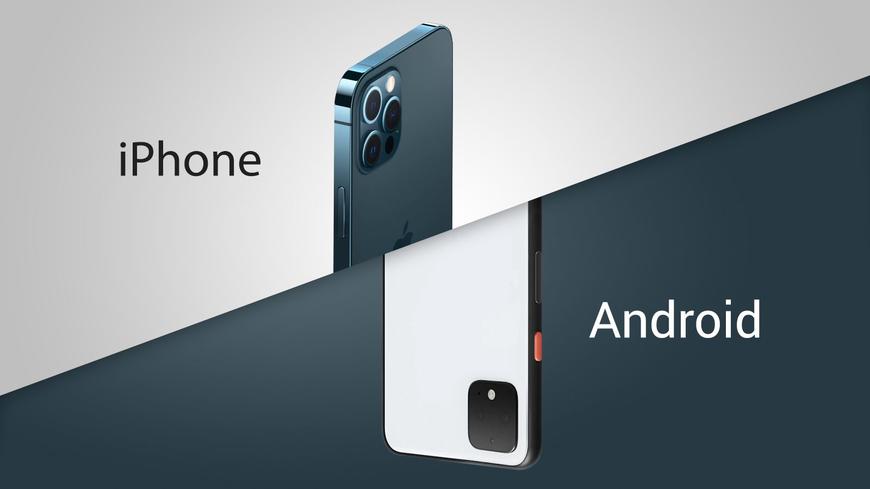
In the ever-evolving world of smartphones, two giants have been waging war for dominance: Android and iOS. With billions of users worldwide, these mobile operating systems have revolutionized the way we interact with technology. Android, backed by Google's open-source philosophy, and iOS, meticulously crafted by Apple, have fiercely divided consumers and ignited heated debates among tech enthusiasts. Today, we dive deep into the heart of this rivalry, comparing features, performance, app ecosystems, and more, to determine which operating system reigns supreme.
The App Ecosystem: Quantity vs. Quality
One of the key differentiators between Android and iOS lies in their app ecosystems. Android, with its open-source nature, allows developers greater flexibility to create and distribute apps without stringent restrictions. Consequently, the Google Play Store boasts a massive number of apps, giving Android users an extensive selection to choose from. However, this openness comes at a cost, as the Play Store can occasionally be plagued with lower-quality or malicious apps.
In contrast, Apple's tightly controlled App Store prioritizes quality and security, ensuring a curated experience for iOS users. The stringent app review process and exclusive access to some top-tier apps give iOS an edge in offering a more refined and secure environment. While Android might excel in quantity, iOS shines in quality, and the choice ultimately depends on the user's priorities.
Customization vs. Consistency
Android enthusiasts often tout the system's unparalleled customization options as a major advantage over iOS. From home screen widgets to third-party launchers, users can tailor their Android devices to match their unique preferences. This customization freedom is a big draw for tech-savvy individuals who love to tinker with their gadgets.
On the other hand, iOS favors consistency and simplicity. Apple's tight control over the user experience ensures that iOS devices work cohesively, with seamless integration between hardware and software. This approach results in a polished, uniform feel across all iOS devices, providing a user-friendly experience for a wide range of users. The choice between customization and consistency boils down to personal preference and technical proficiency.
Hardware Diversity vs. Optimization
Android's ecosystem offers an astounding array of devices manufactured by various brands, catering to every budget and user preference. The diversity in hardware ensures that users can find a device that suits their specific needs, be it a budget-friendly smartphone or a high-end flagship with cutting-edge features. This adaptability has contributed to Android's wide adoption globally.
In contrast, Apple maintains tight control over the hardware on its iOS devices. By crafting both the software and hardware in-house, Apple optimizes its devices to provide seamless performance and efficiency. This cohesion results in a fluid user experience, with the latest updates and features available to most iOS users simultaneously. While Apple's approach may limit device options, it delivers a more consistent and optimized user experience.
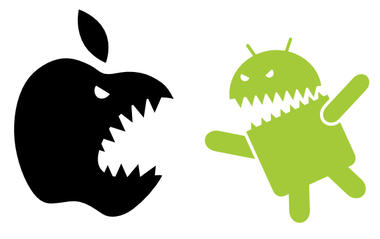
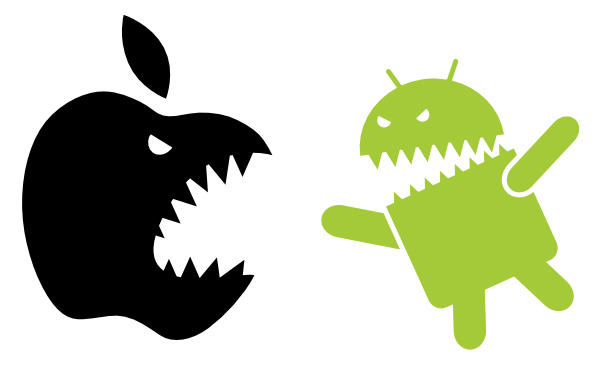
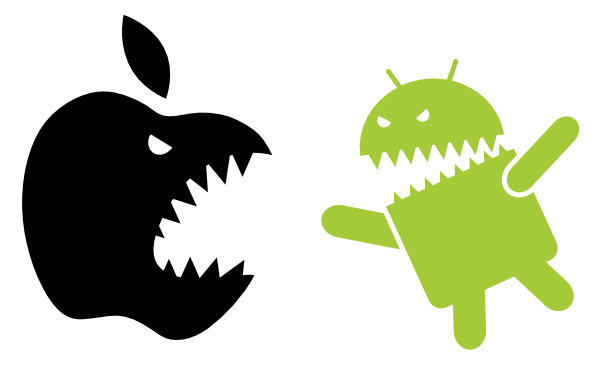
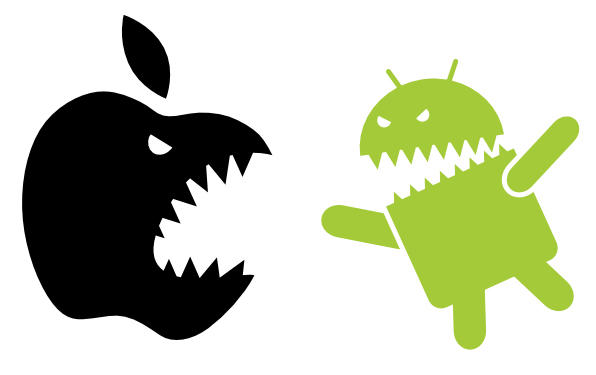
Privacy and Security: Apple's Forte
Privacy and security have emerged as critical concerns in the digital age, and this is where Apple has taken a definitive stand. The company prides itself on its commitment to user privacy, incorporating features such as App Tracking Transparency and end-to-end encryption to safeguard user data. Apple's business model largely relies on hardware and premium services, reducing its reliance on targeted advertising and data monetization.
In comparison, Android's open-source nature has led to more diverse privacy policies and data practices across different device manufacturers. Google, while making efforts to bolster security, faces challenges in achieving the same level of privacy control as Apple. Nonetheless, Android users have the option to tweak privacy settings according to their comfort level, offering a more flexible approach.
Integration and Ecosystem Lock-In
Apple has built an ecosystem that revolves around its devices, services, and software, creating a sense of lock-in for its users. Seamless integration between iOS devices, Mac computers, and Apple services like iCloud, iMessage, and AirDrop encourages users to stick with the ecosystem, making switching to other platforms more challenging. This strategy has helped Apple foster a loyal user base and ensures a consistent user experience across its product lineup.
In contrast, Android's open nature allows for greater cross-platform compatibility, making it easier to switch between Android devices and other operating systems. While this openness grants users more freedom, it may not instill the same level of ecosystem loyalty that Apple enjoys.
Conclusion
The battle between Android and iOS continues to rage on, with both operating systems offering compelling features and benefits to their users. Android's flexibility, hardware diversity, and vast app library appeal to those seeking customization and budget-friendly options. Meanwhile, iOS excels in delivering a refined user experience, unmatched privacy, and a seamless ecosystem that caters to its loyal fanbase.
Ultimately, the choice between Android and iOS boils down to individual preferences, priorities, and technological inclinations. Both operating systems have transformed the smartphone landscape and will continue to shape the future of mobile technology, driving innovation and competition in an ever-evolving digital world. Whether you side with the vibrant Android camp or the elegant iOS aficionados, the ongoing rivalry will undoubtedly push the boundaries of mobile technology, benefitting consumers and tech enthusiasts alike.